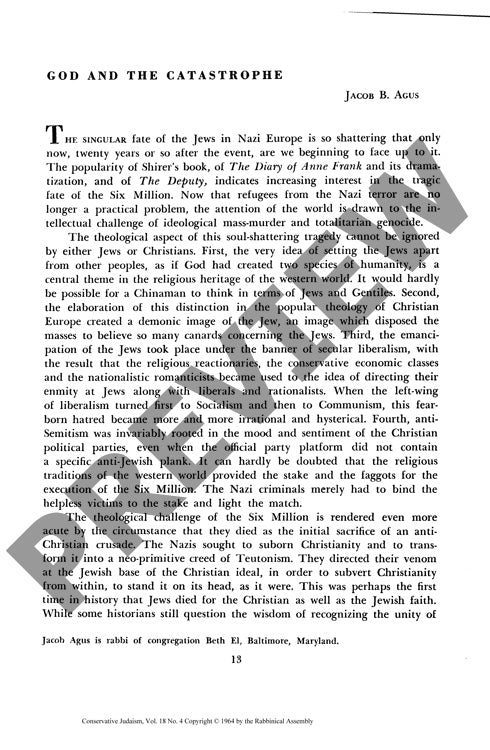God and the Catastrophe
Couldn't load pickup availability
The Holocaust's theological implications continue to challenge both Jewish and Christian thought, raising a fundamental question: How can traditional beliefs about God's nature persist in the shadow of genocide? Twenty years after the murder of six million Jews, three competing theological responses have emerged: a mysterious but omnipotent and benevolent God, an all-powerful but morally indifferent deity, or a morally perfect but limited divine force. Through philosophical analysis, each framework reveals critical weaknesses - traditional monotheistic explanations risk perpetuating dangerous myths about Jewish suffering, materialist interpretations diminish human moral agency, and purely evolutionary concepts of an emerging God could paradoxically justify Nazi ideology through survival-of-the-fittest reasoning. While each theological approach addresses vital human needs - religious faith, ethical inquiry, and objective knowledge - none proves sufficient in isolation when confronting Holocaust theology. A more nuanced synthesis incorporating elements from all three perspectives offers the most viable framework, acknowledging divine mystery and moral imperative while maintaining rational historical investigation. This approach reframes Jewish suffering as emblematic of universal human tragedy rather than divine punishment, contributing to humanity's evolving moral consciousness instead of reinforcing theological myths.

More Information
-
Physical Description
-
Publication Information
Published 1964
ISBN
-
Publication Credits
Jacob Agus

